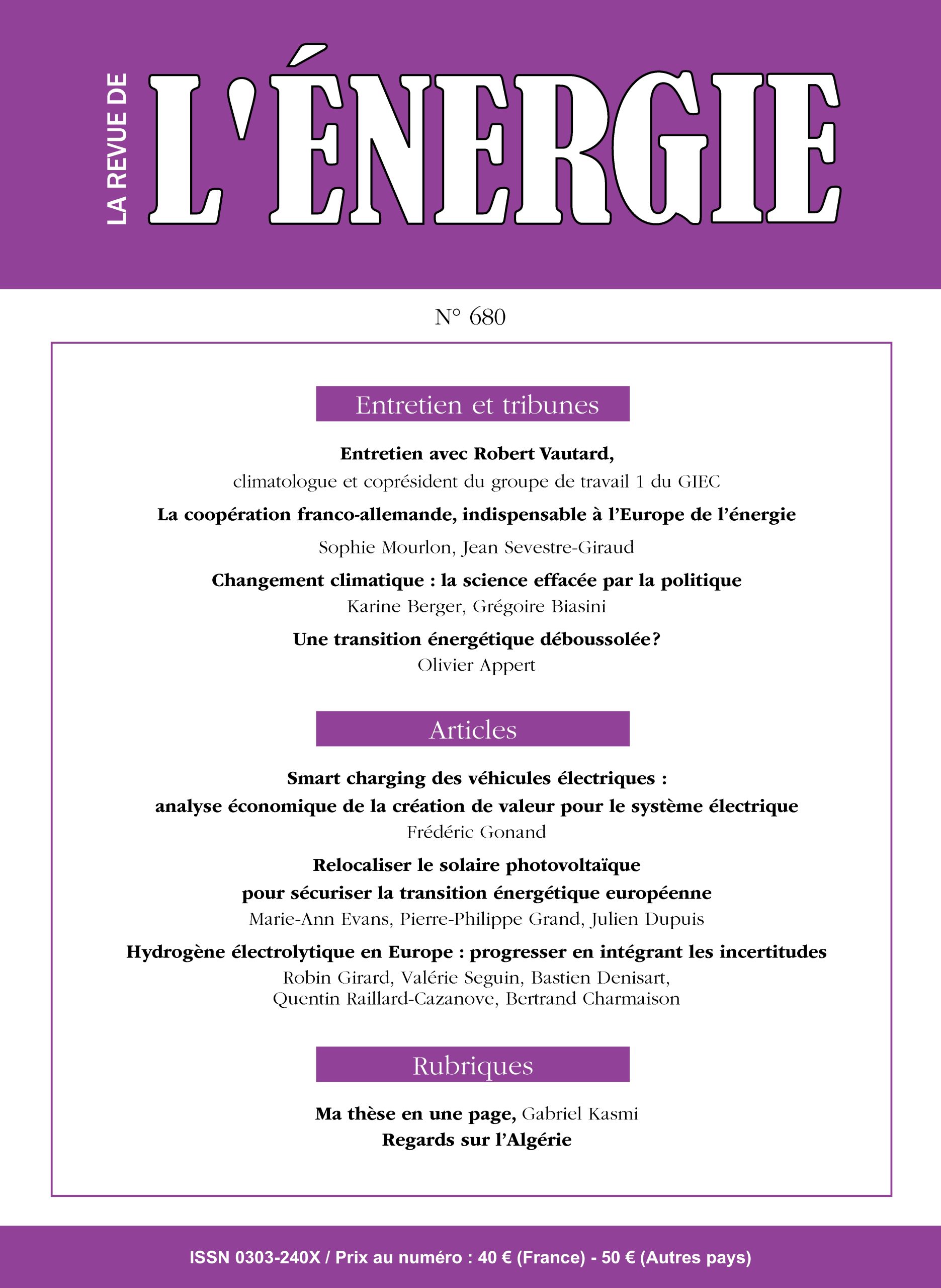En économie de marché, le prix de l’électricité est un signal qui doit guider le consommateur dans ses choix, sous réserve que ce prix reflète bien les coûts complets du kWh. L’article insiste sur deux points. Avec un parc constitué majoritairement de nucléaire et de renouvelables, un « merit order » fondé sur les coûts marginaux ne permet pas de financer correctement la puissance et il faut augmenter la part « puissance » du tarif au détriment de sa part « énergie ». En second lieu, le prix du kWh doit couvrir les coûts complets, y compris les « externalités » négatives. Via le marché du carbone, on a pris en compte le coût du CO2 de l’électricité produite avec les combustibles fossiles. Il faut, de la même façon, prendre en compte le coût du stockage et de déstockage des énergies renouvelables non pilotables.
The role of the price signal in managing a ‘‘decarbonised’’ electricity mix
In a market economy, the price of electricity is a signal that guides consumers in their choices, provided of course that the price reflects the full costs of electricity per kWh. The article highlights two points. First, with nuclear and renewables representing the bulk of the fleet, a merit order based on marginal costs does not allow for an adequate funding of the power system. Instead, it is necessary to increase the ‘‘power’’ share of the tariff to the detriment of its ‘‘energy’’ share. Second, the price per kWh must cover all costs, including negative ‘‘externalities’’. Carbon markets have made it possible to take into account the cost of CO2 in electricity produced with fossil fuels. In the same way, the cost of the storage and destocking of intermittent renewable energies must also become part of the equation.

